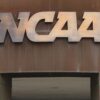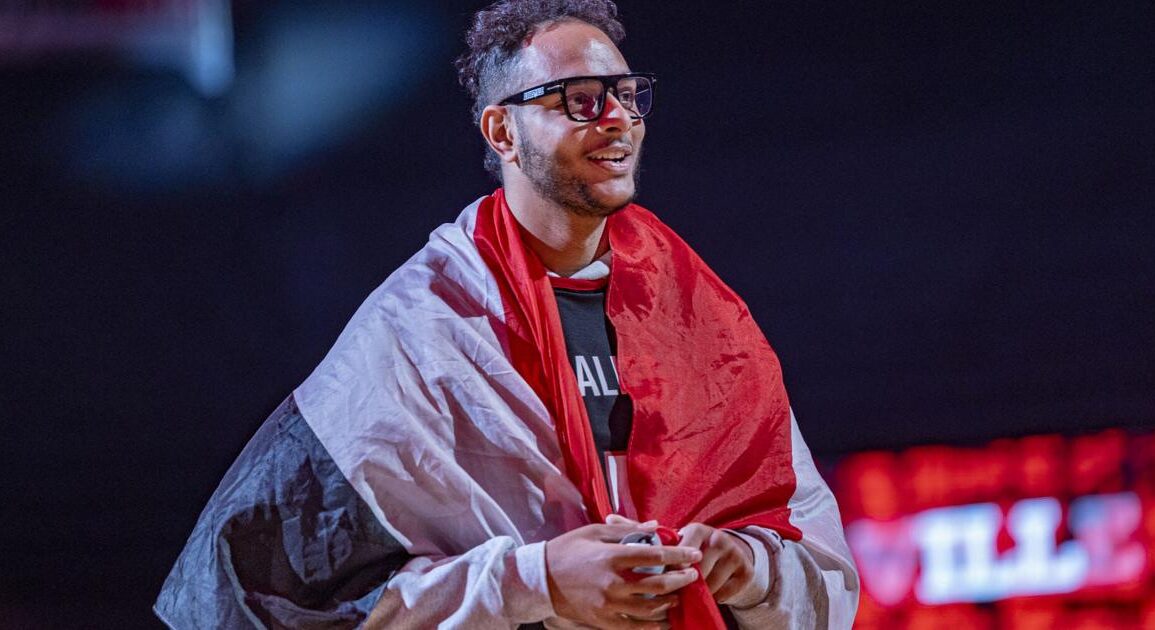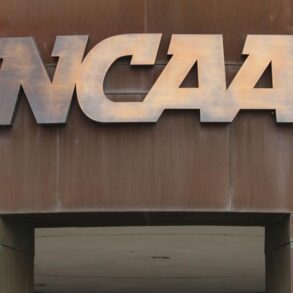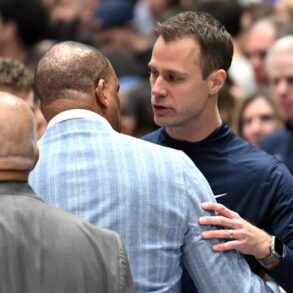
LOUISVILLE, Ky. (WDRB) — So here we are again. The NCAA is denying the eligibility of a big man in the Louisville men’s basketball program.
Let’s just say I’ve seen this movie before. The latest installment involves Aly Khalifa, the skilled Egyptian center who transferred to Louisville from BYU last season. Before that, he played two seasons at Charlotte. In all, he’s appeared in just three college basketball seasons.
Khalifa sat out last season with an injury, redshirting as he recovered. He applied for a medical waiver to play what would be his fourth season on the court. The NCAA said no.
It’s not clear why. The NCAA won’t comment. Louisville hasn’t offered further detail beyond a basic statement. But the likely sticking point is Khalifa’s enrollment at Charlotte in 2020-21 — a season he did not play. That, plus a medical redshirt request, may have triggered NCAA red tape around a potential “sixth year.”
Louisville | Kentucky | Indiana | Bozich & Crawford
But here in 2025, a sixth year of eligibility is hardly uncommon. Louisville just watched a quarterback suit up for his seventh college season.
And yet, what would seem like a routine request almost anywhere else has become, at Louisville, another eligibility saga.
Why would any objective journalist say that? Because I’ve lived it. I’ve reported it.
Muhamad Lasege
You can go back to the clips. There was Muhamad Lasege, a kid who was trying to get out of Lagos, Nigeria, to play college basketball. He wound up playing in Russia, on the business end of a machine gun, before he escaped, was befriended by fellow Nigerian Hakeem Olajuwon and finally made his way to Denny Crum at Louisville.
But because he signed a “work agreement” in Russian, under duress, as a minor, and associated with some characters the NCAA viewed as nefarious to get where he was going, the NCAA ruled he had signed with an agent and shown an intent to professionalize. It ruled him ineligible.
With the assistance of prominent Louisville attorney James Milliman, he won his eligibility, played 13 games and then lost his case in the Kentucky Supreme Court when four justices who graduated from the University of Kentucky law school outvoted two Louisville graduates and one from Cincinnati, 4-3.
The case was wild. At one point, U of L attorneys showed up in court and sat on the NCAA’s side of the proceedings. Milliman was incensed. The American Council on Education filed an amicus brief in support of the NCAA.
Lasege had no chance. Fortunately, for him, Rick Pitino was the coach by then — and helped, along with others, to pay for him to finish school. He kept working him out and encouraged him to go pro, to help pay for his advanced education. And that’s what Lasege did. He played basketball so he could pay for school. It was the exact opposite of what the NCAA had called an intent to play professional basketball.
His tale, and his academic achievement, helped him get into the Wharton School of Business. Lasege worked for Exxon for five years and was director of capital markets, investment and global credits for Brown-Forman for two years before becoming director of finance and strategy for Latin America. Today, he’s on the board of advisors for U of L’s school of business and a vice president for Acuity Brands.
Marvin Stone
But the drama wasn’t over. Another big man, Marvin Stone, made the nearly unheard-of decision to transfer from Kentucky to Louisville for the 2002-03 season. It made a splash, but Stone joined the team and played without incident until late in the season, when the NCAA came calling.
It started hounding Stone about a former AAU coach of his that it had in its crosshairs. Stone hired an attorney, Don Jackson, out of Alabama. I’ve always been grateful that Jackson provided a window into how the NCAA operated. (U of L hired an attorney, too, named Chuck Smrt, but I’m not going to get into that here.)
The NCAA did some crazy stuff. Demanded to interview Stone but wouldn’t inform him of allegations against him. Demanded to talk to his mother and threatened is eligibility when she refused. It called him once at 11 p.m. to ask questions.
Pitino was livid and didn’t hide it. Stone finally was forced to begin sitting out games, with Pitino getting word from the university about three hours before a conference game. You can imagine how that went over, especially considering the impermissible benefits Stone had allegedly received were during his time or recruitment at Kentucky, where his eligibility had never been questioned.
Then, Stone was reinstated. Then, he was benched again when the NCAA came waving wire transfers he was supposed to have received. The only problem: At least one of the transfers was to a different Marvin Stone, a 53-year-old project manager in Atlanta.
It all came to a head during a five-hour conference call, as an NCAA investigator accused Stone of receiving a wire transfer in Atlanta, while Louisville Athletic Director Tom Jurich pulled up a practice log showing Stone was on the court in Louisville at the exact time the wire transfer allegedly landed in Atlanta. Jackson, meanwhile, had called the phone number listed on the wire transfer receipt. The other Marvin Stone picked up — confused and not too happy to be involved.
I talked to the guy later.
“I got that money from someone in Louisville for a personal thing to take care of, and it isn’t anybody’s business,” he said. “I don’t like that they had a copy of the Western Union paper, and even so, why didn’t they just call and talk to me and ask about it? It would have taken them five minutes. Instead, they try and use it to hurt a college basketball player. You’re not going to confuse us. He’s 6-10, and I’m 5-7.”
Still, the NCAA said Stone had to sit. He wouldn’t return until the championship game of the Conference USA Tournament. By then, the distraction had derailed Louisville’s season.
“It’s the most bizarre situation I have ever been in,” Pitino told me then. “You know, we were 18-1 before Marvin ever hears from the NCAA. … I don’t believe the NCAA has it in for the University of Louisville … but the system is flawed. There’s a Marvin Stone on every team in America.”
The NCAA never backed down. It maintained Stone was ineligible. But, by this time, Louisville was feeling heat from Jackson, Stone’s attorney, who said unless the school could prove Stone had done something wrong, it was doing him legal damage by continuing to bench him.
Louisville officials and attorneys eventually agreed, and he returned to the team. He would play just three more games, the C-USA title game and a pair of NCAA Tournament games.
Stone never made the NBA but carved out a pro career in Europe — until tragedy struck in 2008, when he collapsed at halftime of a playoff game in Saudi Arabia and died of a heart attack at age 26.
Louisville’s Luck
A lot has changed since those days. Or maybe it hasn’t.
In an era when nearly anyone can get a waiver for nearly anything, the NCAA has drawn the line — again — with a Louisville player who’s only logged three actual seasons of college basketball.
By all accounts, Khalifa has done nothing wrong. Neither has Louisville.
Maybe this is just bad luck. Maybe more details are still to come. But with this history — and it’s impossible to ignore — you have to wonder if one of the red flags the NCAA saw was the word across his chest: Louisville.
Louisville Basketball Coverage:
Louisville transfer big man Aly Khalifa ruled ineligible by NCAA, will appeal
Coffee with Crawford | Kelsey, Pope, Pitino, Cal — who really had the most rewarding season?
Freedom Hall comeback set as Louisville renews rivalry with Cincinnati
Early Start: Louisville-Kentucky men’s basketball rivalry set for rare November tipoff
Copyright 2025 WDRB Media. All Rights Reserved.
This post was originally published on this site be sure to check out more of their content.










